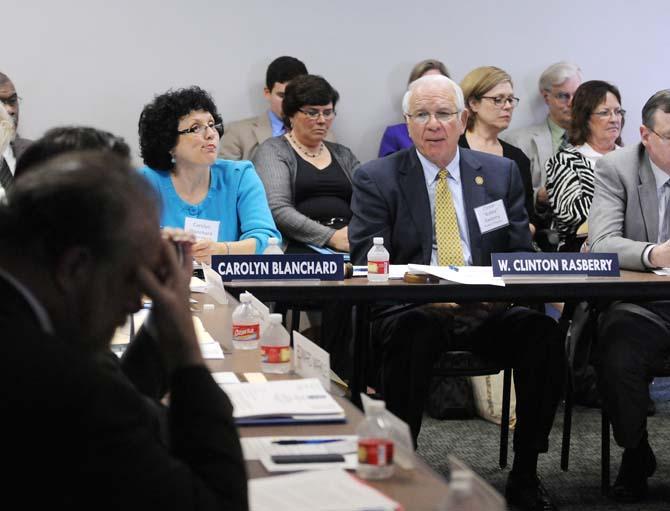Campus climate surveys and law enforcement training are two priority points for a sexual assault working group aimed to improve how college campuses handle sexual assault.
Sen. J.P. Morrell, D-La., said the working group may incorporate new findings into legislation as they arise but wants these topics ready for next session’s pre-filing deadline of March 13.
Campus climate surveys are anonymous polls given to all students on an annual basis. Students’ answers would help researchers understand the scope of sexual assault as well as how much students know about resources and prevention, said LSU Women’s Center director Summer Steib.
Morrell formed the working group in October after the Board of Regents granted his July request for a thorough report on sexual assault at state campuses.
The report prompted the Regents to form their own committee in October to investigate a statewide policy on the issue.
Commissioner of Higher Education Joseph Rallo said he thinks Regent policies match up to national standards while still allowing individual campuses flexibility.
“We are not trying to have a one-size-fits-all policy,” Rallo said.
But Morrell feels Regents’ policy alone will not be adequate to address the problem.
“I fully support and encourage the idea, but I don’t want anyone to think that because there is a parallel working group from Regents that we’re not going to look at legislation,” Morrell said. “There is some stuff you can’t just put in policy. It has got to be the law.”
Steib said uniform legislation is a great way to protect students and educate them about their rights and the responsibilities of their campus.
“If something happens at LSU, it’s going to be handled the same way as if it happened at Southern or ULM instead of each university having its own procedures and protocols that may or may not be best practices and in line with federal regulations,” Steib said.
Morrell said with universities across the country facing budgetary concerns, funding for campus climate surveys would be susceptible to cuts as long as they were not mandated by law.
“Inevitably what happens is that the different administrations will say, ‘It’s either cut this climate survey or get rid of this major you guys like,’” Morrell said. “You don’t want to put students, parents or donors in a position where they have to make this almost selfish choice on ‘Do we have safer
campuses, or does a professor lose his job?’”
Morrell said there must also be a way to make the survey results publicly accessible.
“If the university establishes a policy that they are going to do climate surveys, there is nothing that makes them have to make that climate survey public,” he said.
Steib said climate surveys are important because administrators and policy makers can see the reality of sexual assault as well as the perception.
But she and Morrell said law enforcement training is also necessary.
“It has become increasingly clear that, as bad as the universities appear to be after my initial question regarding sexual assault on campuses,” Morrell said. “On sexual assault in general, the whole state has got issues.”
The senator said that while some departments have sexual assault training across the board as well as a specialist on the subject, others receive none at all.
Morrell said he is working on language for a bill that would create an outline for training officers and thinks it would be most effective in their mandatory
post certification.
“I think that whenever you look at the sheer number of laws we have in our state, and so much of the law has been recently enacted. I think specific training about sexual assault, particularly for law enforcement that works with college students, is really beneficial,” Steib said.
While Morrell knows a mandate will always be met with resistance, he said the positive student input has been an encouragement.
“I have been really impressed with how active student bodies have been in saying that we have to change the culture,” Morrell said. “It would be even more difficult if I had the student bodies also fighting against it.”
Campus sexual assault legislation moves forward
January 13, 2015
Louisiana Board of Regents chair W. Clinton “Bubba” Rasberry, Jr. leads the discussion Monday, Feb. 17, 2014 at a meeting in the Pennington Biomedical Research Center.
More to Discover












